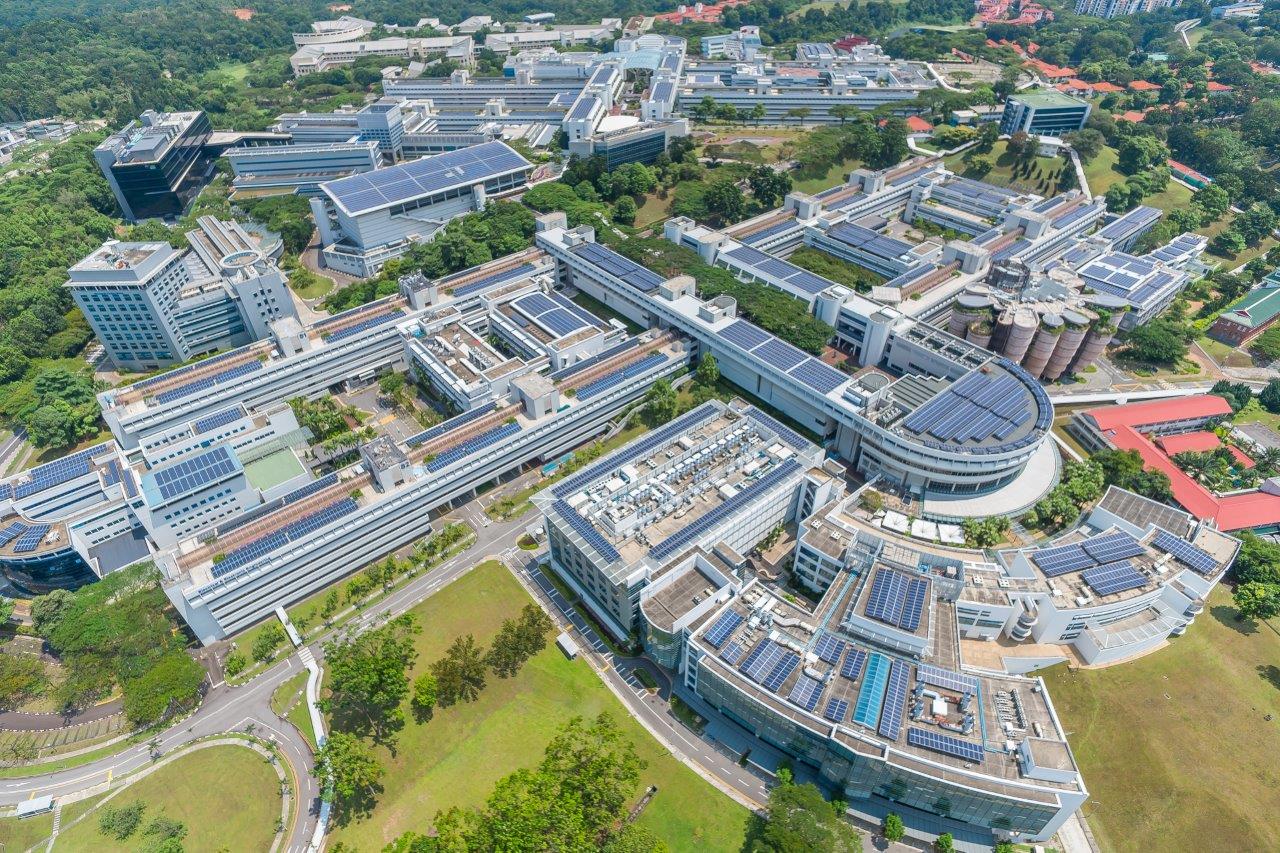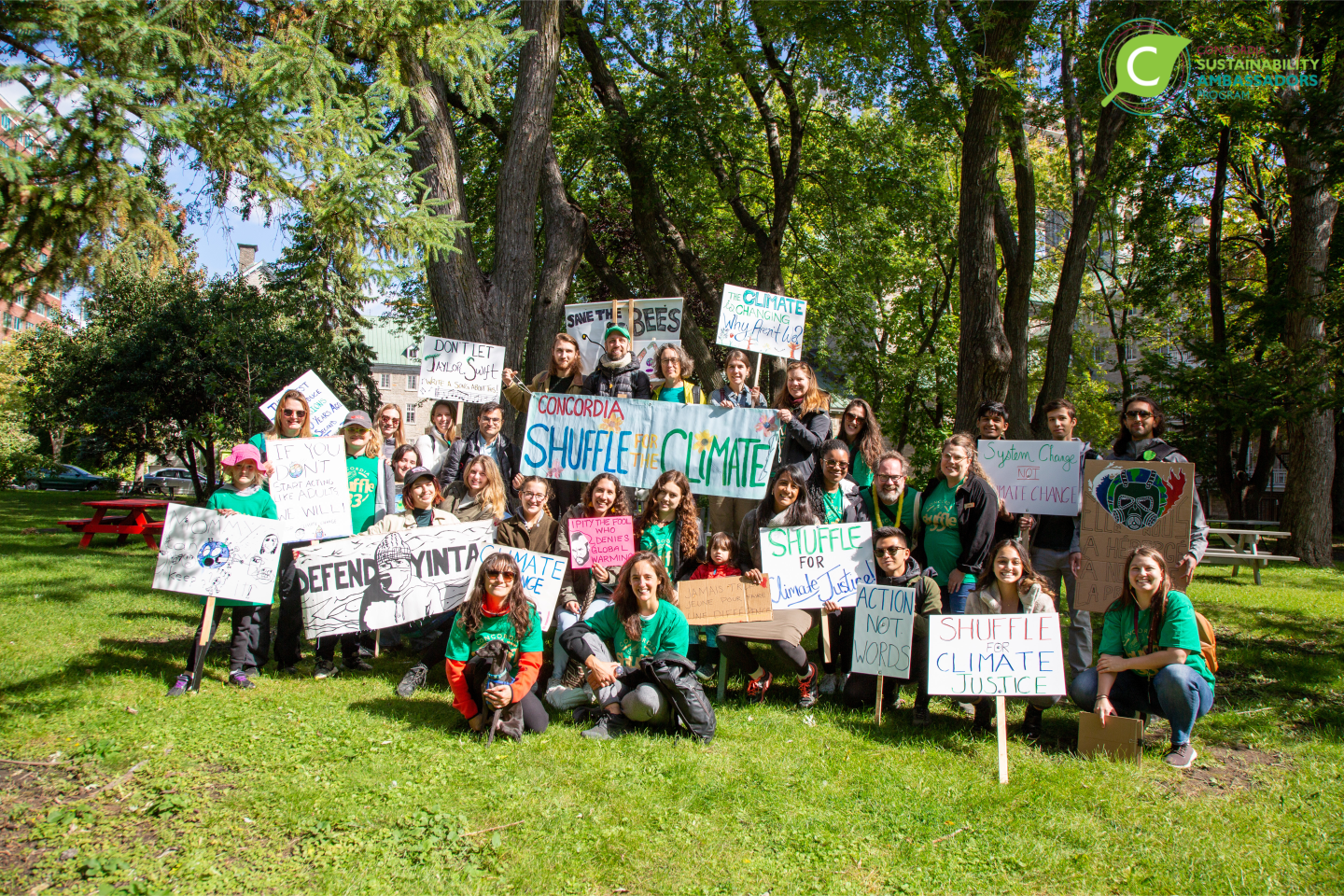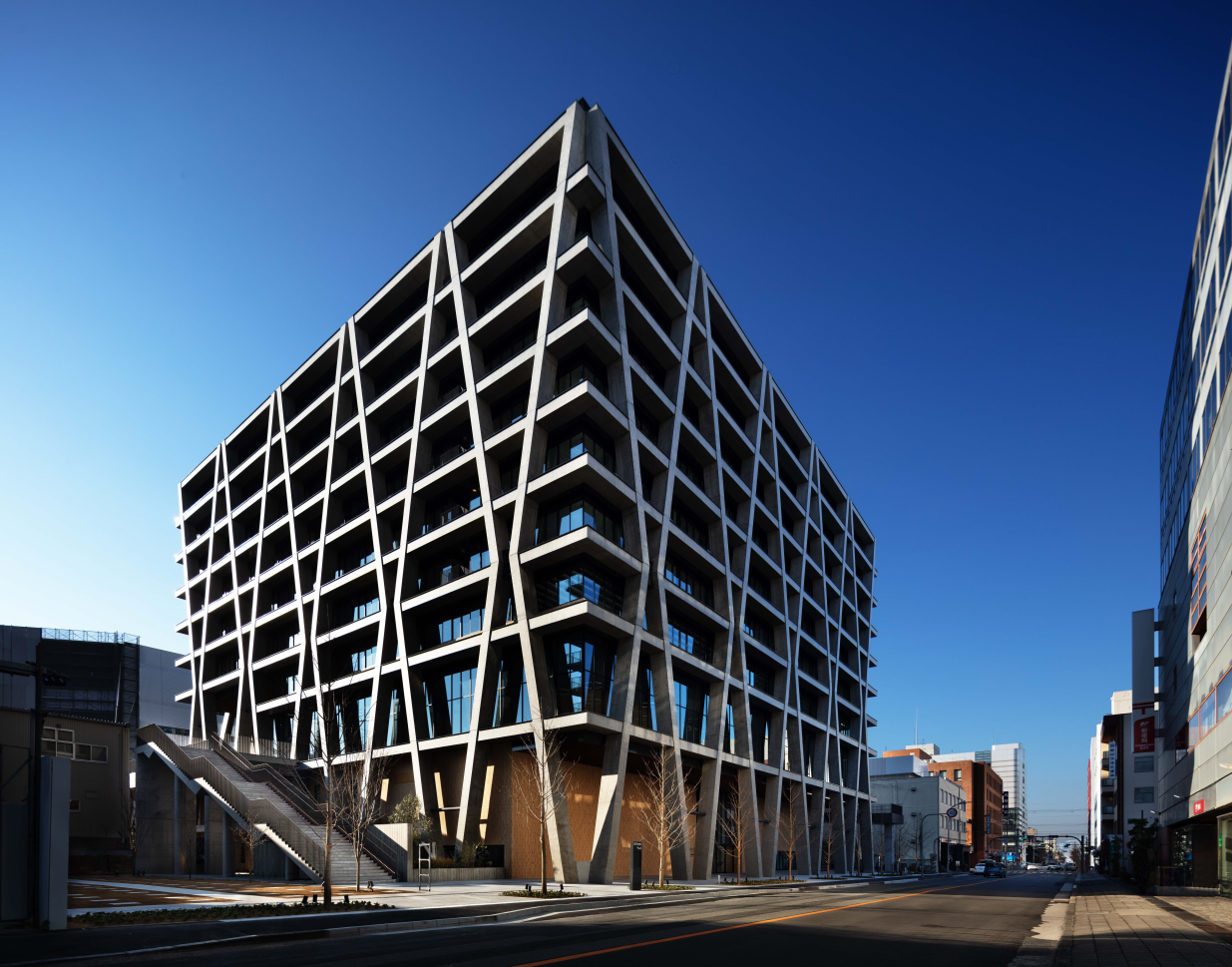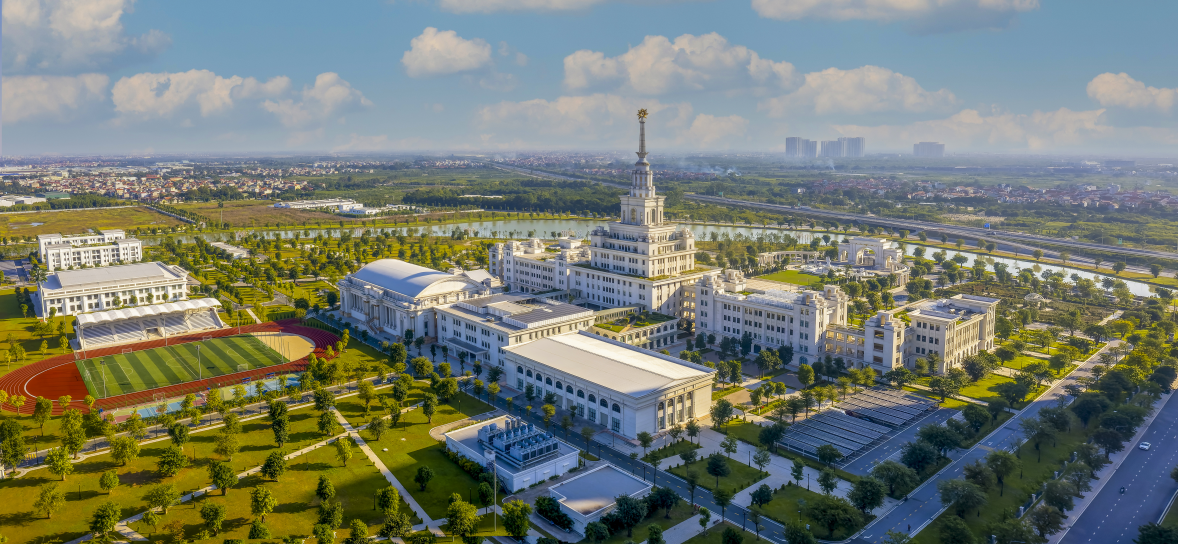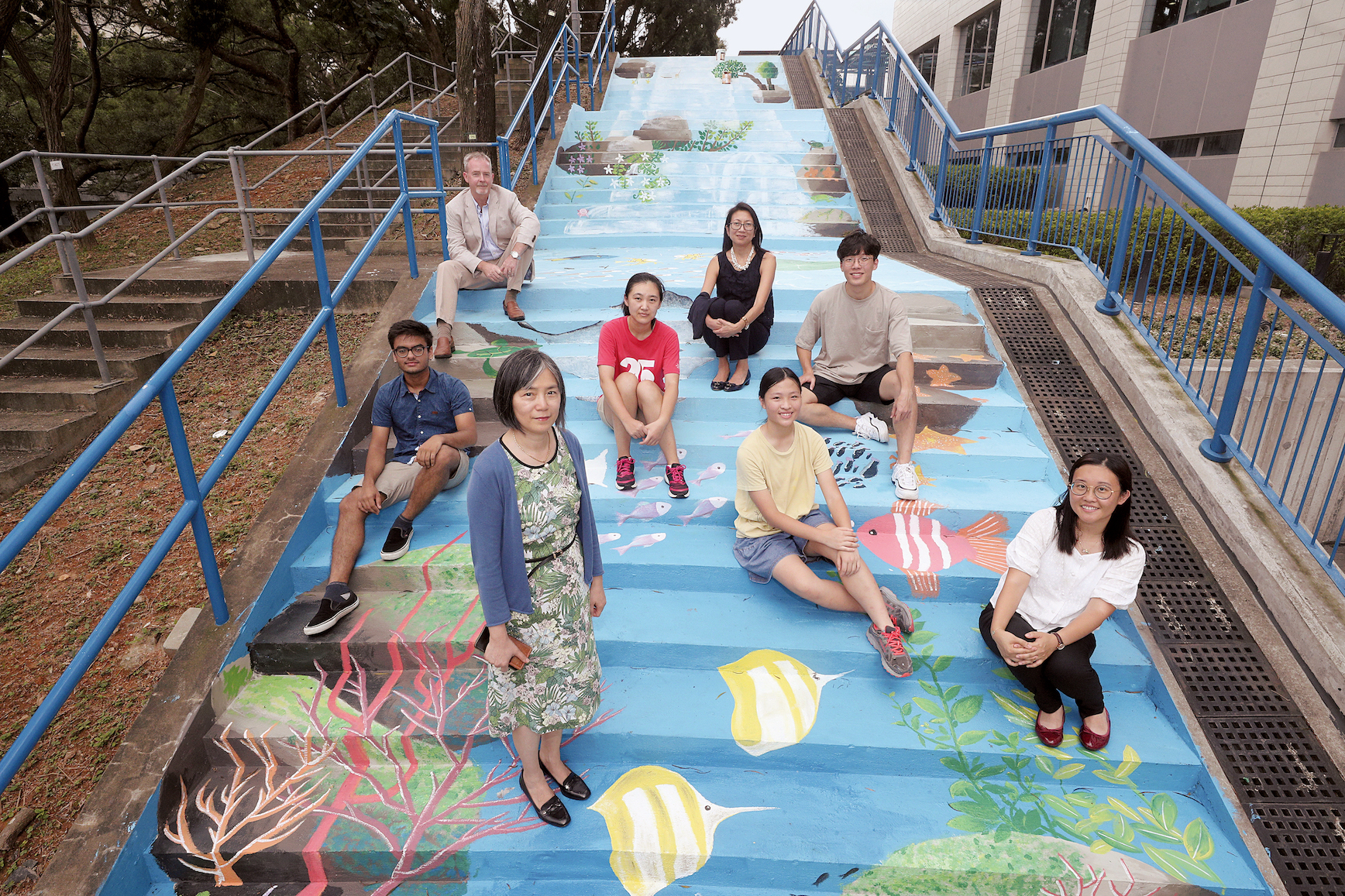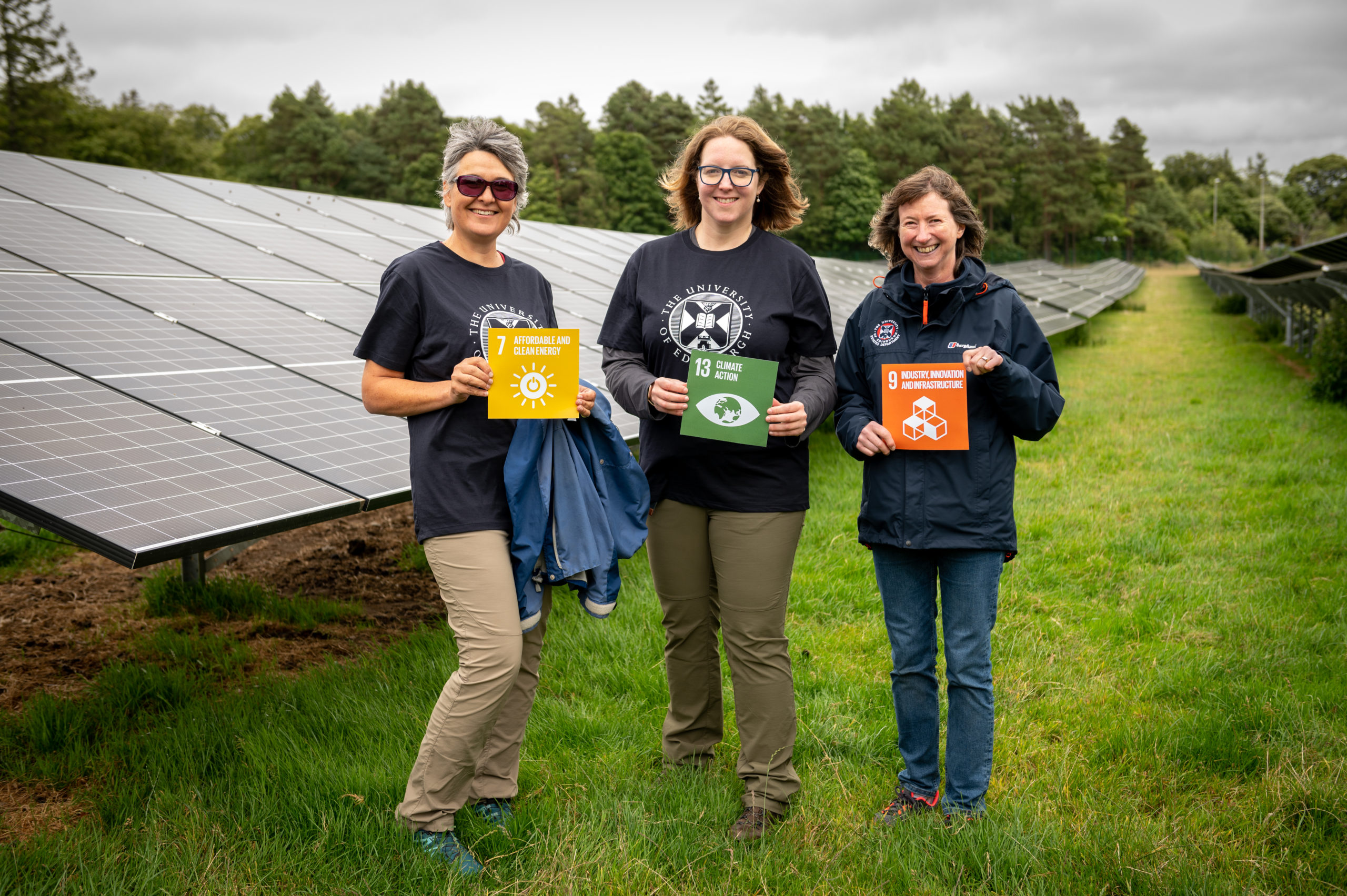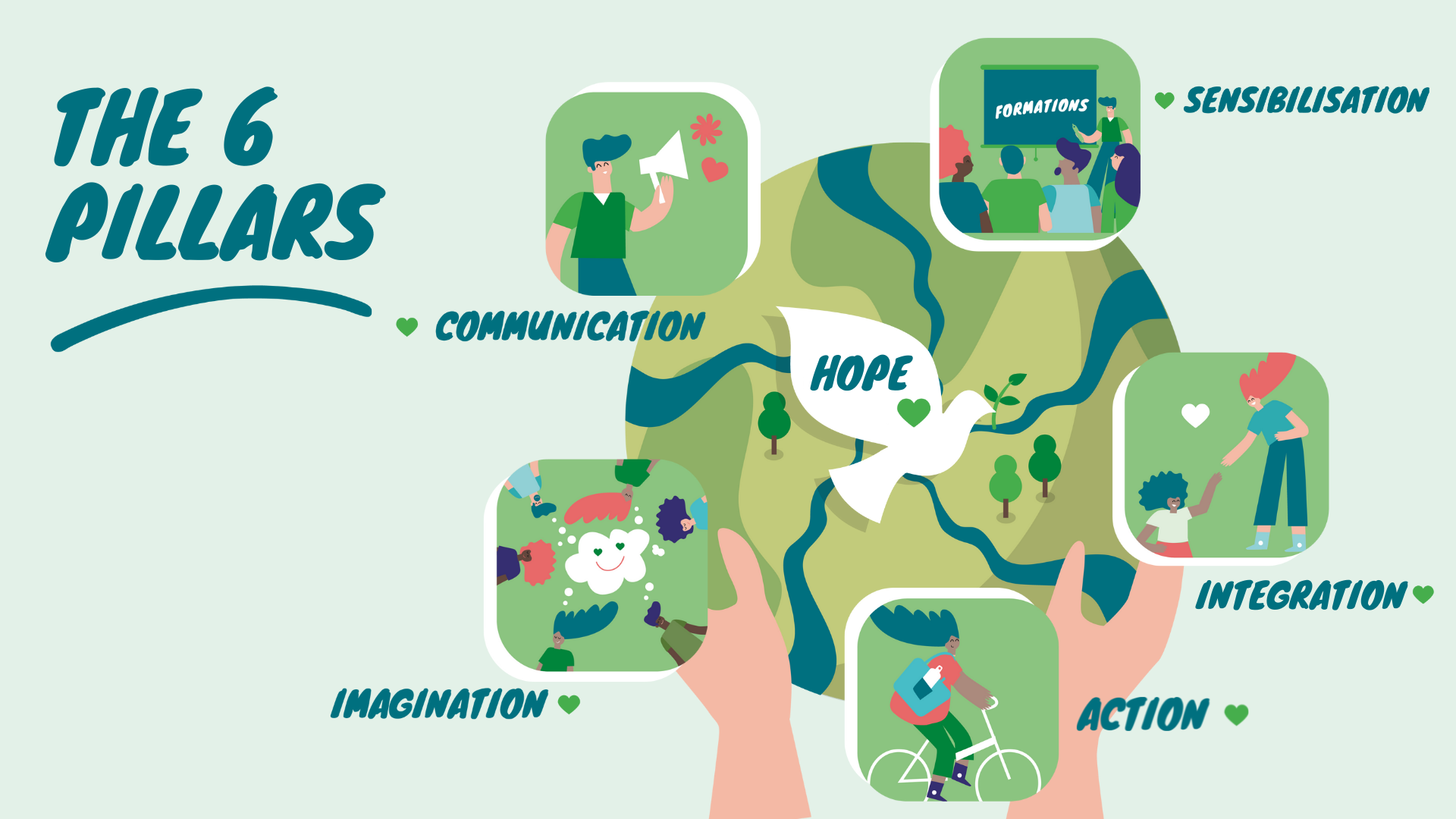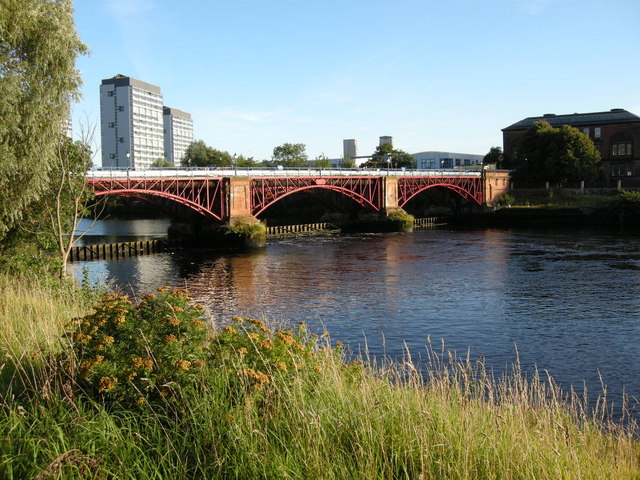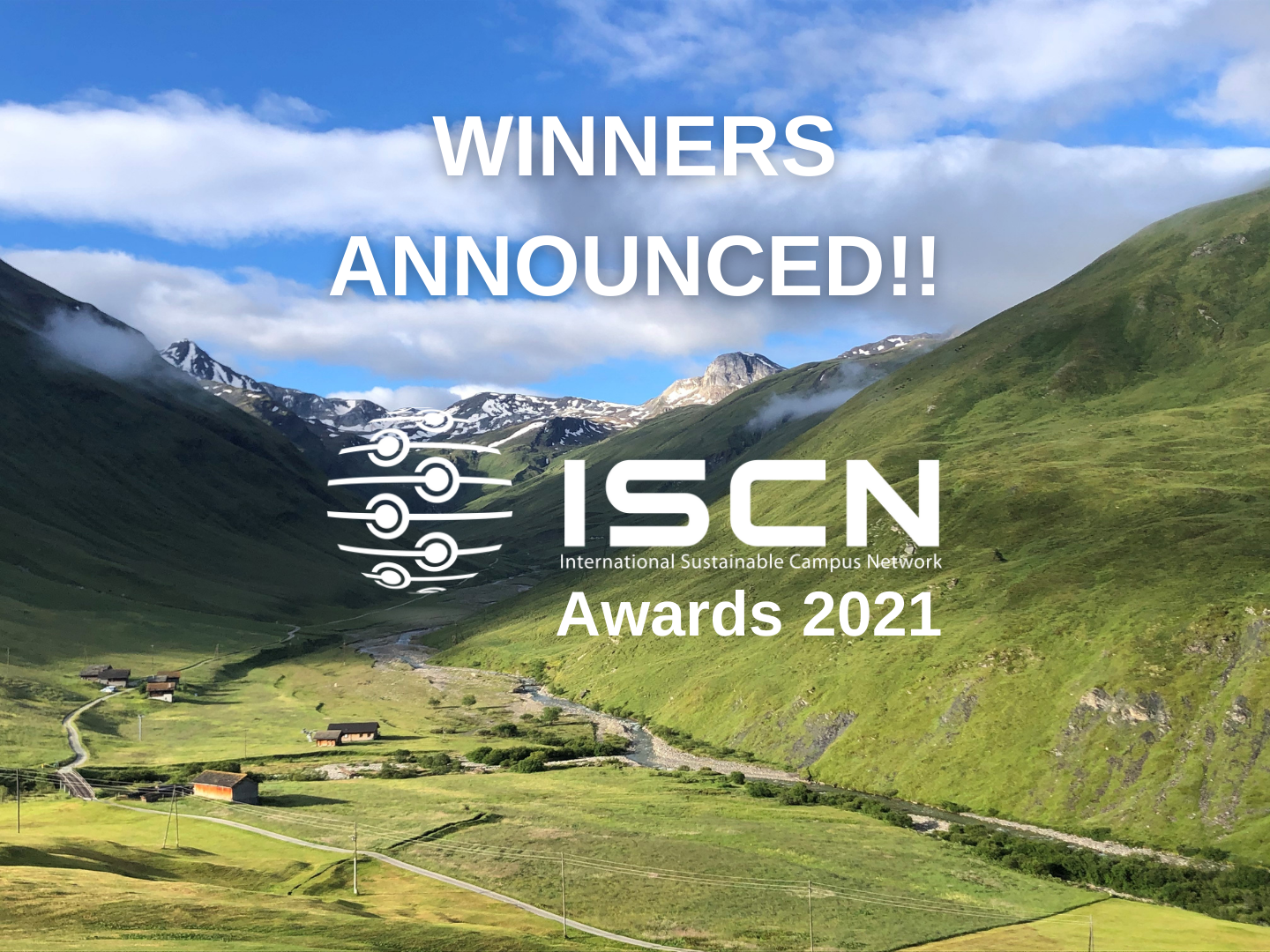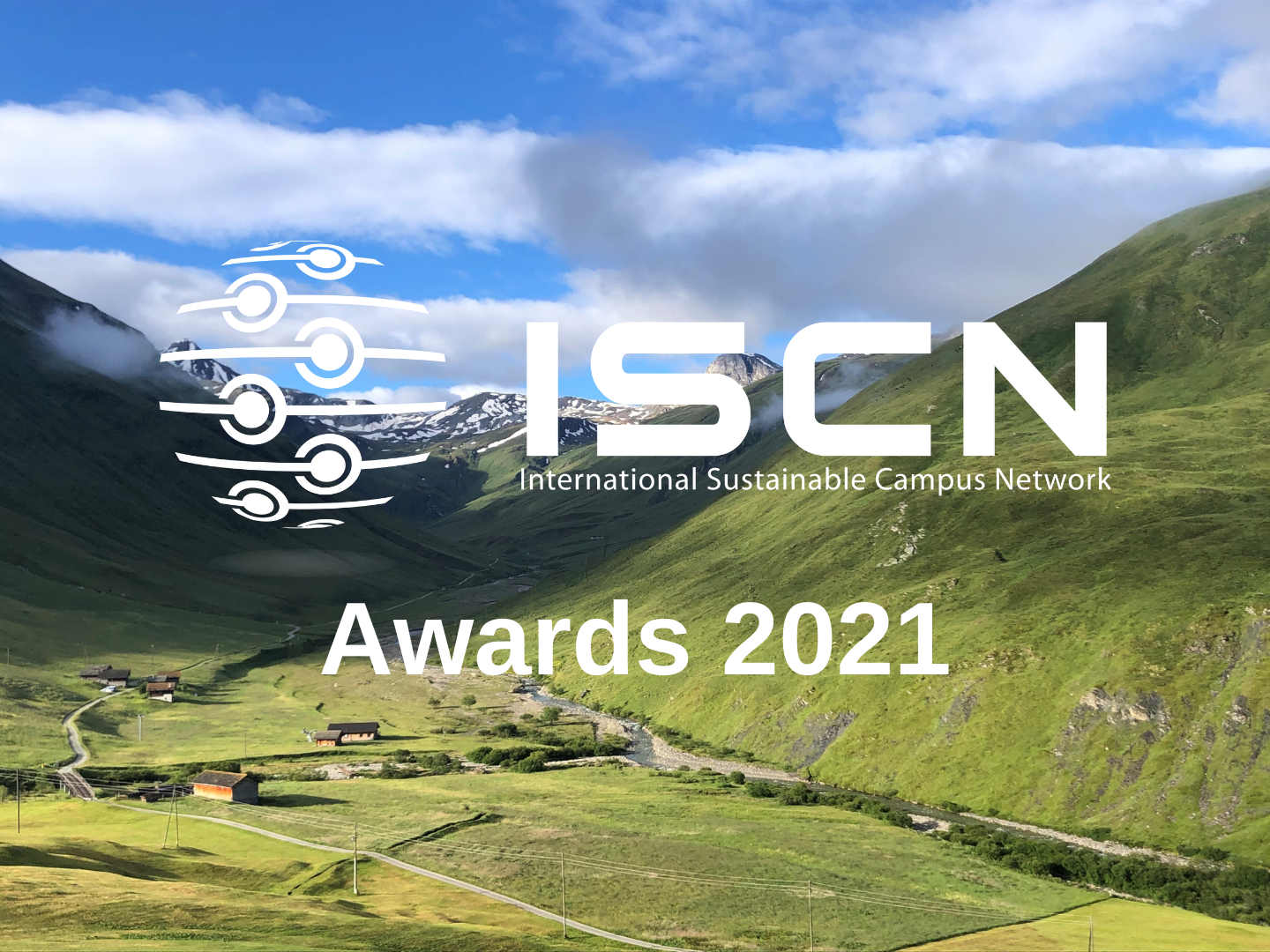2023 Award Winner: Nanyang Technological University
NTU’s Whole Systems Approach to Sustainable Campus Infrastructure
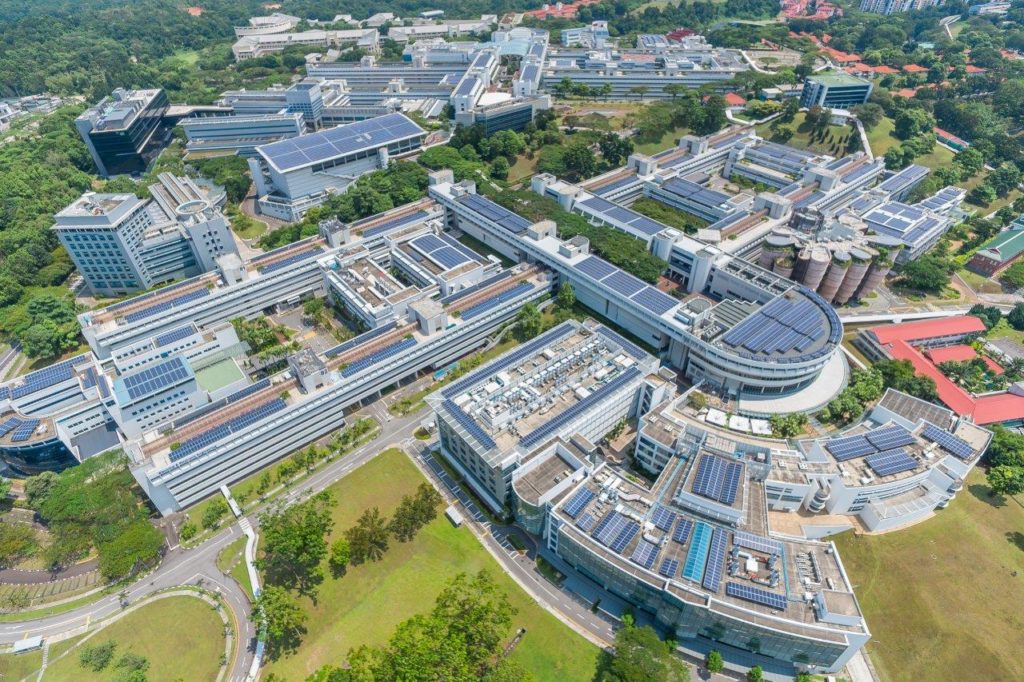
In recent years, the importance of sustainability has become increasingly evident, and universities around the world have started to take action to reduce their carbon footprint. Nanyang Technological University (NTU) in Singapore has demonstrated a remarkable commitment to sustainability through its innovative and ambitious construction projects. The university has pioneered the use of Mass Engineered Timber (MET) as a sustainable building material, producing two of Asia’s largest MET buildings, both of which have received widespread recognition for their environmentally friendly design.
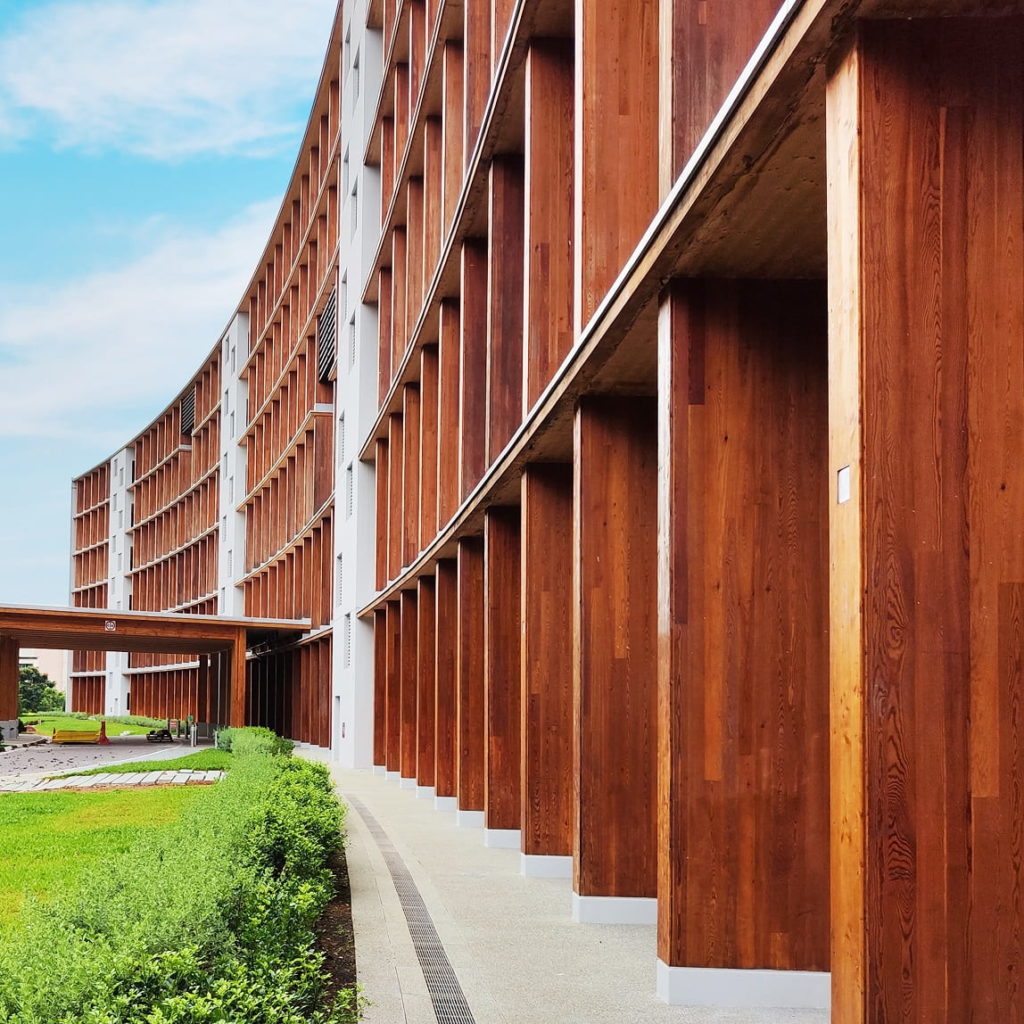 The Academic Building South (ABS) is the most recent addition to NTU’s sustainable infrastructure, which is now Asia’s largest MET building, and the most ambitious sustainable construction project undertaken by NTU to date. The ABS, built in 2022, is a six-story, 40,000 square-meter facility that provides an innovative learning space for over 4,500 students. The building features 25 smart classrooms equipped with energy-efficient features, offering world-class spaces for flexible and collaborative learning. The building also utilizes Passive Displacement Ventilation (PDV) technology, which offers superior cooling efficiency that eliminates the need for traditional cooling fans and reduces energy consumption.
The Academic Building South (ABS) is the most recent addition to NTU’s sustainable infrastructure, which is now Asia’s largest MET building, and the most ambitious sustainable construction project undertaken by NTU to date. The ABS, built in 2022, is a six-story, 40,000 square-meter facility that provides an innovative learning space for over 4,500 students. The building features 25 smart classrooms equipped with energy-efficient features, offering world-class spaces for flexible and collaborative learning. The building also utilizes Passive Displacement Ventilation (PDV) technology, which offers superior cooling efficiency that eliminates the need for traditional cooling fans and reduces energy consumption.
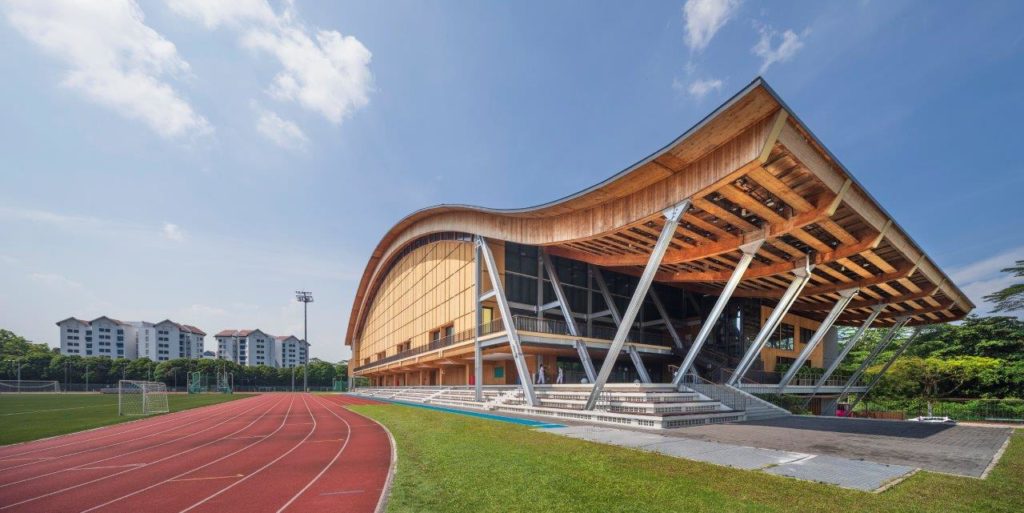 The construction of the ABS was inspired by NTU’s first MET building known was The Wave. The Wave is a three-story high sports hall that became the first large-scale building made of MET in Southeast Asia when it was constructed back in 2017. The hall’s wave-like roof, which spans 72 meters, houses three full-sized basketball courts without any internal columns. The building’s design offers superior heat insulation, and its PDV technology provides a highly efficient cooling system that not only saves energy, but also eliminates wind draft from conventional cooling fans, making it an excellent ground for sports such as badminton.
The construction of the ABS was inspired by NTU’s first MET building known was The Wave. The Wave is a three-story high sports hall that became the first large-scale building made of MET in Southeast Asia when it was constructed back in 2017. The hall’s wave-like roof, which spans 72 meters, houses three full-sized basketball courts without any internal columns. The building’s design offers superior heat insulation, and its PDV technology provides a highly efficient cooling system that not only saves energy, but also eliminates wind draft from conventional cooling fans, making it an excellent ground for sports such as badminton.
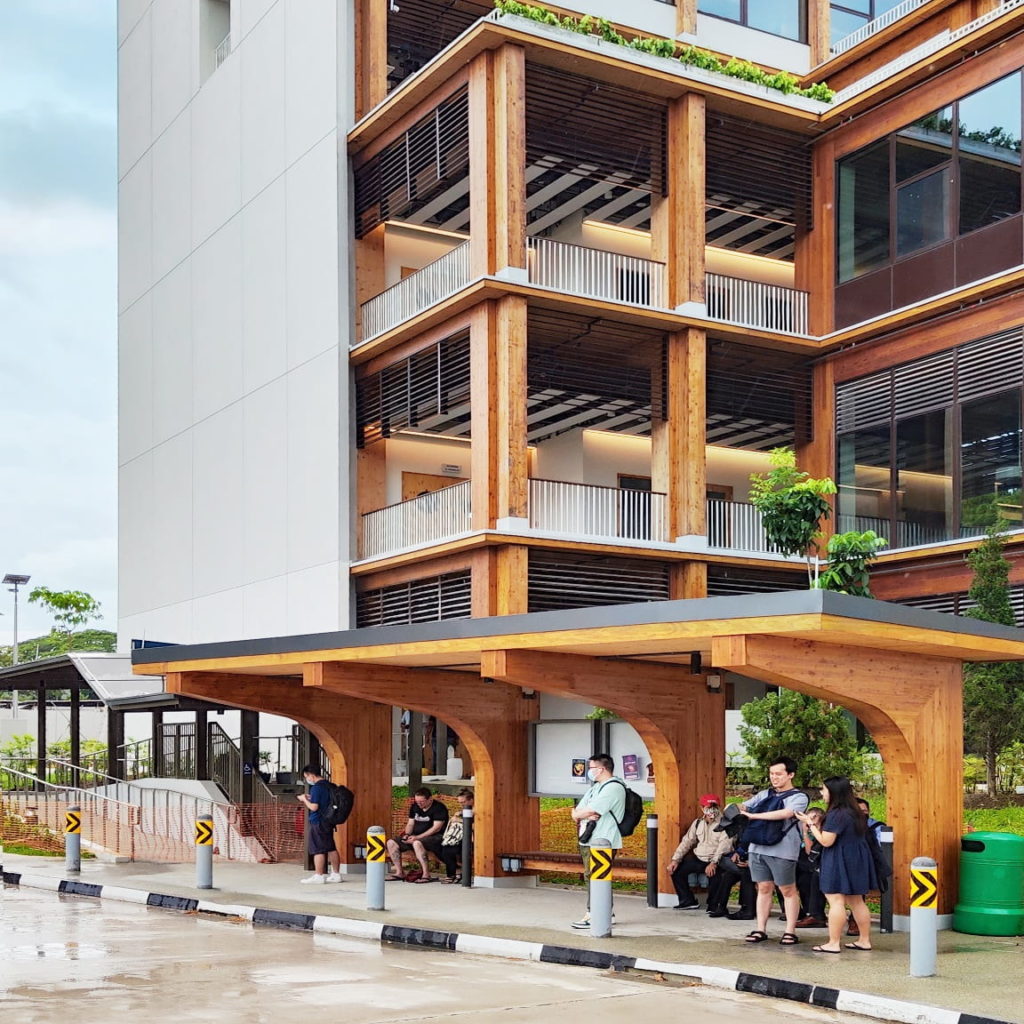 NTU’s sustainable construction projects have had a significant impact on the university’s whole-institution sustainability efforts. In fact, 97% of the buildings in NTU are “Green Mark” certified (equivalent to LEED), and the university has reduced its energy consumption by 30% from its 2011 baseline. NTU has demonstrated an unwavering commitment to sustainability, as evidenced by its bold Sustainability Manifesto that details the university’s sustainability targets and steps towards the goal of achieving carbon neutrality by 2035.
NTU’s sustainable construction projects have had a significant impact on the university’s whole-institution sustainability efforts. In fact, 97% of the buildings in NTU are “Green Mark” certified (equivalent to LEED), and the university has reduced its energy consumption by 30% from its 2011 baseline. NTU has demonstrated an unwavering commitment to sustainability, as evidenced by its bold Sustainability Manifesto that details the university’s sustainability targets and steps towards the goal of achieving carbon neutrality by 2035.
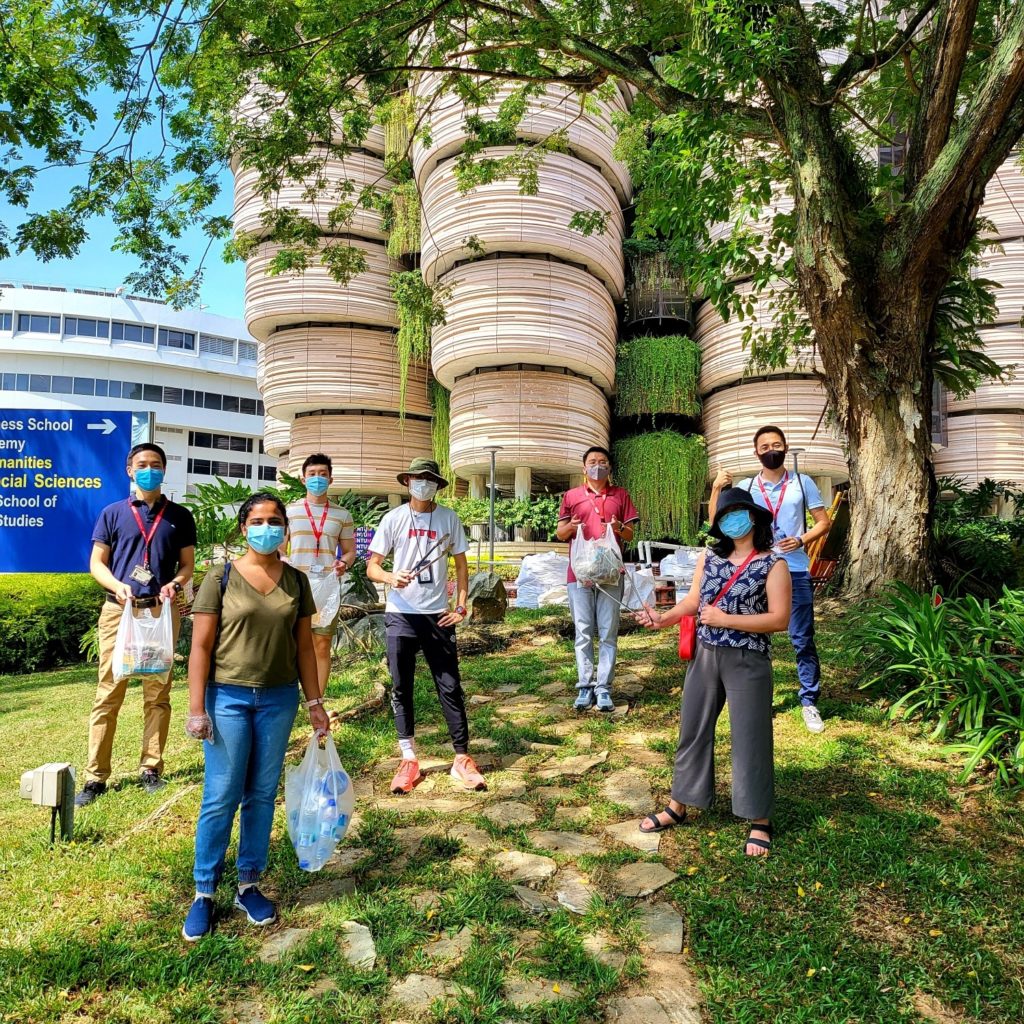
Next Category: Partnerships for Progress
2023 Award Winner: Concordia University
Concordia University’s Cultural Change for a Sustainable Campus Community
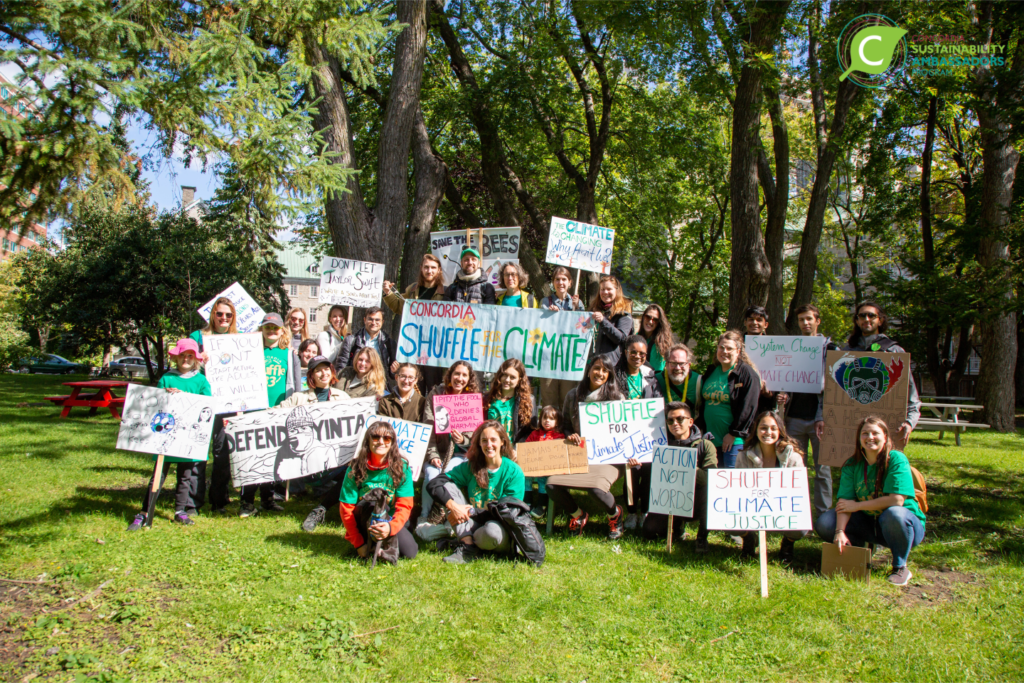
Given the complexity of the climate crisis, the need for youth leadership and a shift towards a community approach to overcome sustainability challenges has become increasingly evident. Concordia University in Canada has demonstrated a notable commitment to sustainability through its Sustainability Ambassadors Program (SAP) that promotes sustainability and drives positive change on campus through student engagement and leadership.
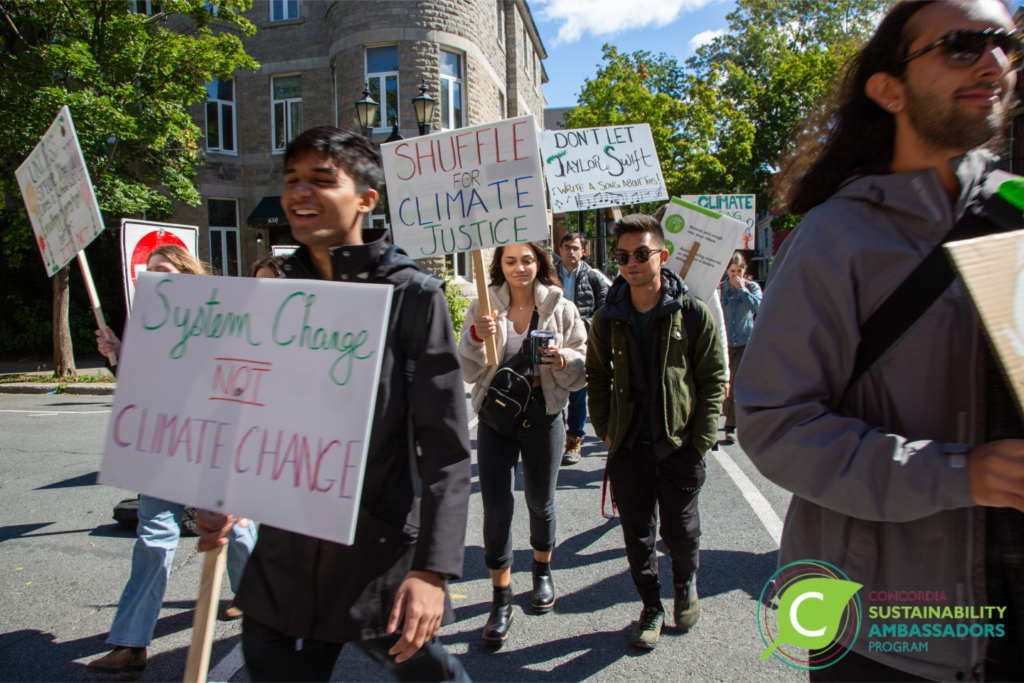
The SAP is an innovative and immersive eight-month program that offers students a unique opportunity to develop their sustainability leadership skills while actively supporting sustainability initiatives on campus. In collaboration with the Office of Sustainability and various key actors within the university, the program provides students with interdisciplinary leadership training and experiential learning opportunities to design and implement projects that inspire sustainable action among their peers. Sustainability Ambassadors are encouraged to collaborate with existing campus groups, ensuring that their projects take a multi-stakeholder, holistic, and interdisciplinary approach that incorporates both oral and institutional memory to implement solutions.
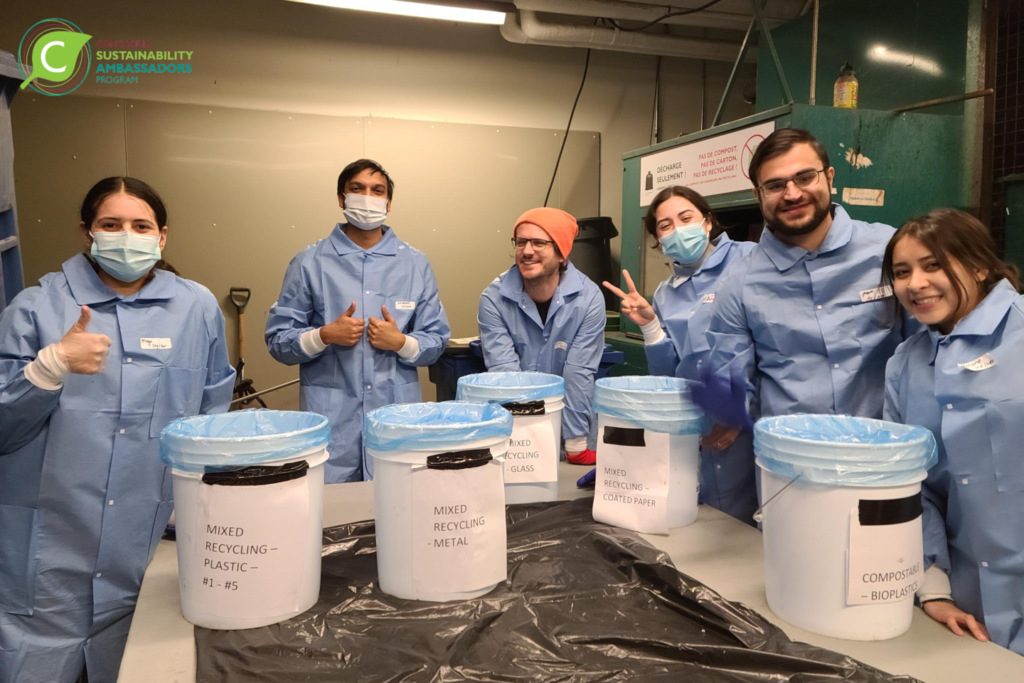
The program accepts students from all degree types, areas of study, course load statuses, and credit completion levels, ensuring that a diverse group of individuals with a shared passion for sustainability can contribute to the program's success. By focusing on empathy and compassionate communication, the SAP fosters autonomous leadership in sustainable advocacy, preparing students to respond actively to the pressing climate crisis.
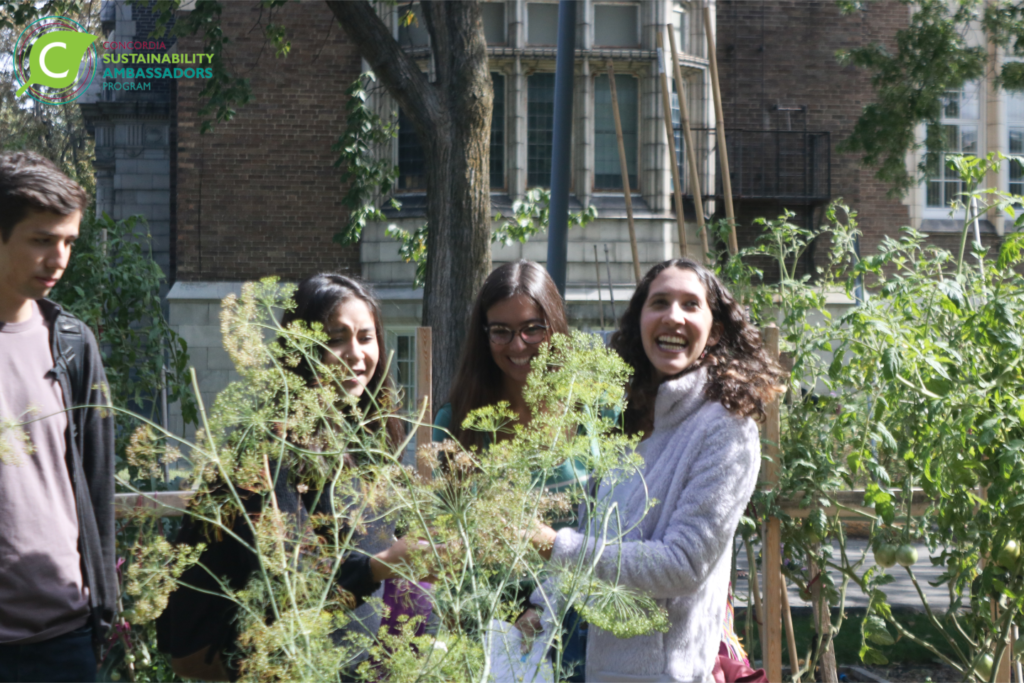
Through the program, students volunteer weekly within existing campus initiatives, working with organizations such as the center for creative reuse, the Hospitality department's Fairtrade initiatives, a precious plastics project for recycling plastic, a campus-community bike shop, and campus gardens. Last academic year, Sustainability Ambassadors contributed a remarkable 1,090 hours of volunteering, dedicating their time to learning and educating others about sustainability and supporting these initiatives. This year, volunteer hours are projected to reach an impressive 2,380 hours, highlighting the program's increasing impact.
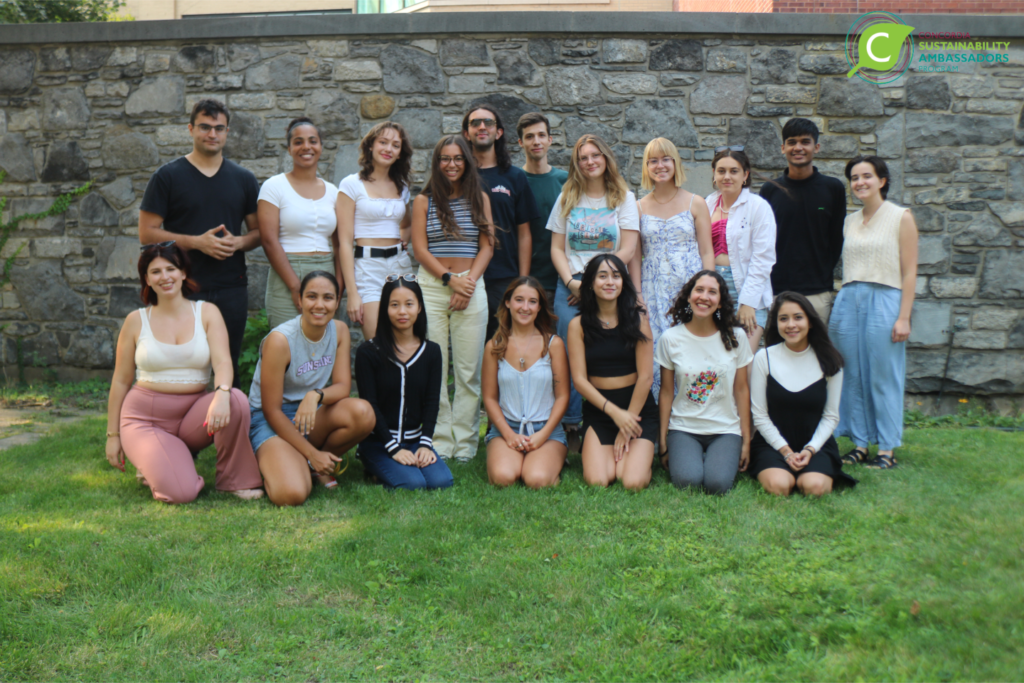
The success of the Sustainability Ambassadors Program lies in its strong engagement with stakeholders and the campus community. The program continually collaborates with campus experts, building relationships across various groups and initiatives to collectively approach sustainability concerns. Partnerships with key campus groups, Concordia units, and student fee-levy groups ensure an integrative approach to understanding and solving sustainability issues. These partnerships provide students with networking opportunities and demonstrate how holistic solutions can be achieved through collaboration.
Next category: Honorary Member
2023 Award Winner: Osaka University
Osaka University’s Partnership Towards a Shared, Sustainable Campus
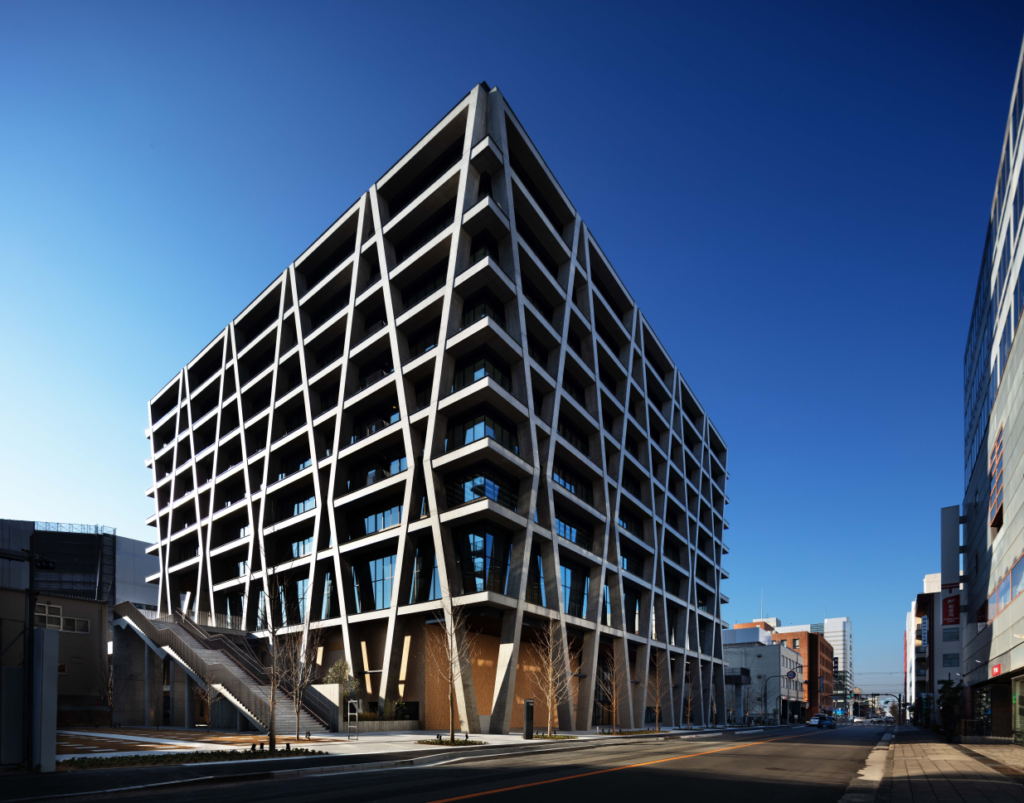
As climate impacts continue to be felt around the world, the need for multidisciplinary collaboration is becoming increasingly evident. Osaka University in Japan has demonstrated a observable commitment to sustainability through its community involvement and innovative collaboration model that led to the completion of the Minoh Campus Relocation Project. The university followed a unique partnership with local governments, private companies, landowners, and local residents that resulted in the development of a highly sustainable and shared campus. The project involved relocating the university’s Minoh Campus from the suburbs and building a new campus in front of a subway station that included a research and lecture building, and a dormitory by Osaka University, as well as a municipal library, a lifelong learning facility, a hall, and a plaza connecting the campus by Minoh City.
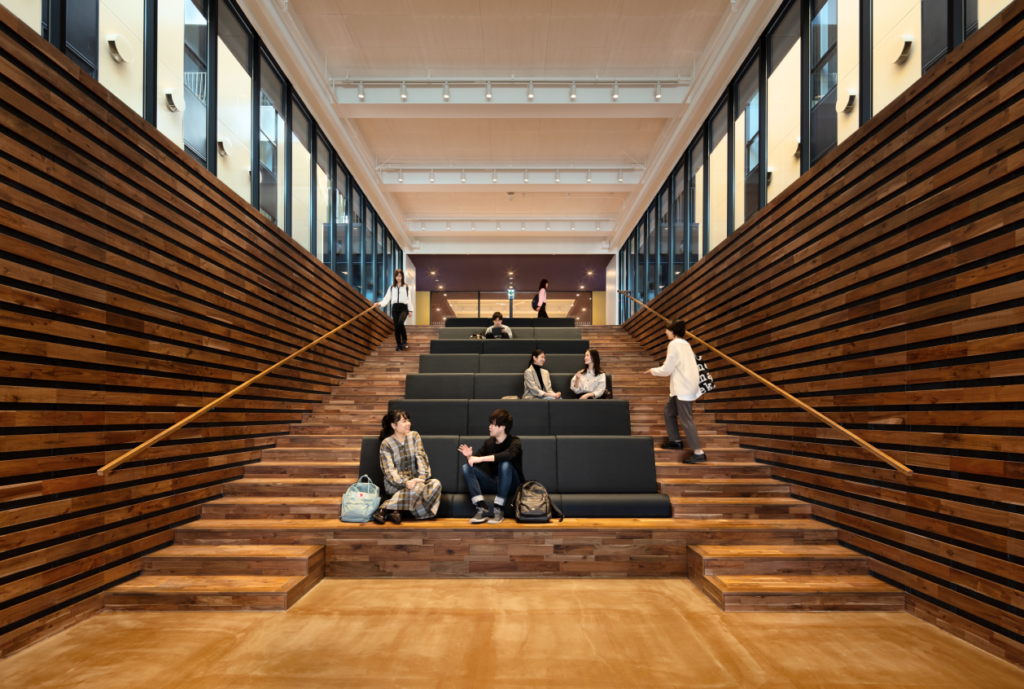 The new Minoh Campus has been awarded a Gold certification for LEED in neighborhood development (LEED-ND), making it the first LEED-ND certified campus in Japan. The campus is highly rated in the categories of “Smart Location and Linkage” and “Neighborhood Pattern and Design”, and the research and lecture buildings have also received the Gold certification for LEED in new construction (LEED-NC).
The new Minoh Campus has been awarded a Gold certification for LEED in neighborhood development (LEED-ND), making it the first LEED-ND certified campus in Japan. The campus is highly rated in the categories of “Smart Location and Linkage” and “Neighborhood Pattern and Design”, and the research and lecture buildings have also received the Gold certification for LEED in new construction (LEED-NC).
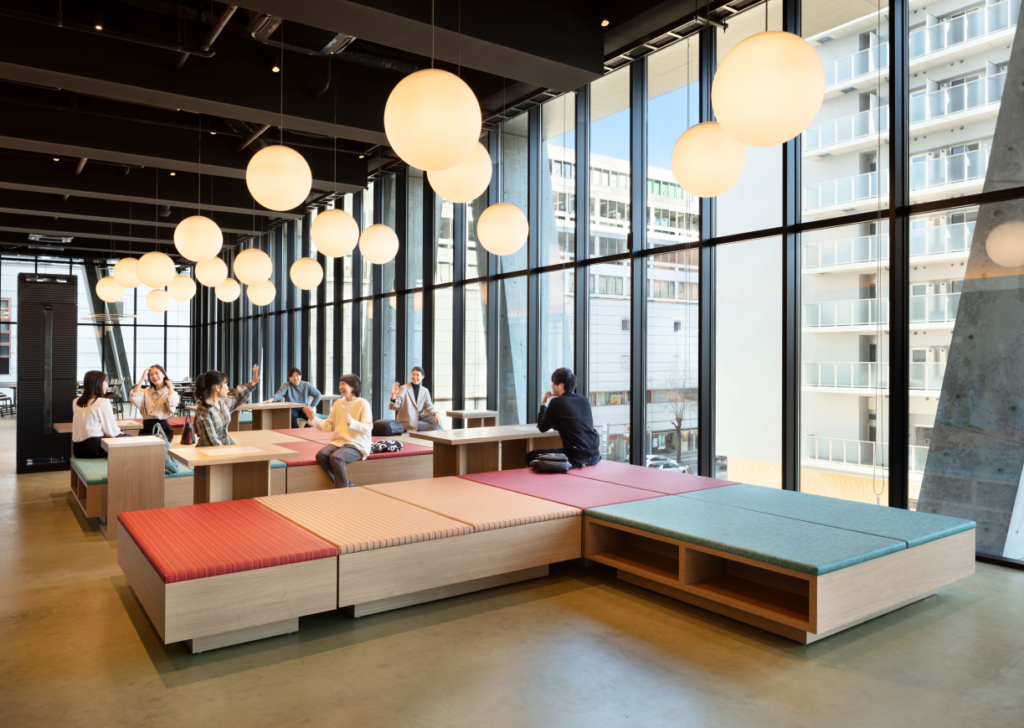 The shared municipal library and lifelong learning facilities have reduced the amount of resources needed to operate the campus. In fact, the total energy consumption of the new campus is 48% lower than that of the old campus. The project also involved the installation of cutting-edge air conditioning equipment, building energy management systems, and implementing various sensors that make the campus a “living laboratory” demonstration site for energy efficiency studies.
The shared municipal library and lifelong learning facilities have reduced the amount of resources needed to operate the campus. In fact, the total energy consumption of the new campus is 48% lower than that of the old campus. The project also involved the installation of cutting-edge air conditioning equipment, building energy management systems, and implementing various sensors that make the campus a “living laboratory” demonstration site for energy efficiency studies.
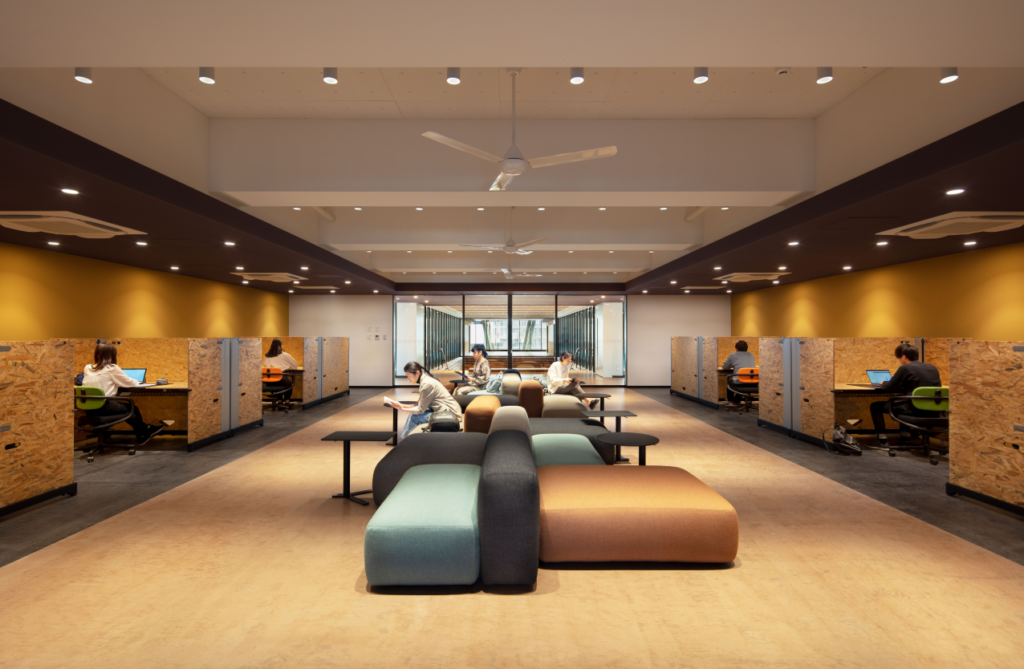 The project resulted in a synergistic effect between academia, culture, and arts, with shared facilities reducing the amount of resources and energy used by the community. The shared nature of the facilities also strengthened project based learning (PBL) classes for students that includes the participation from local residents dealing with specific problems related to the city.
The project resulted in a synergistic effect between academia, culture, and arts, with shared facilities reducing the amount of resources and energy used by the community. The shared nature of the facilities also strengthened project based learning (PBL) classes for students that includes the participation from local residents dealing with specific problems related to the city.
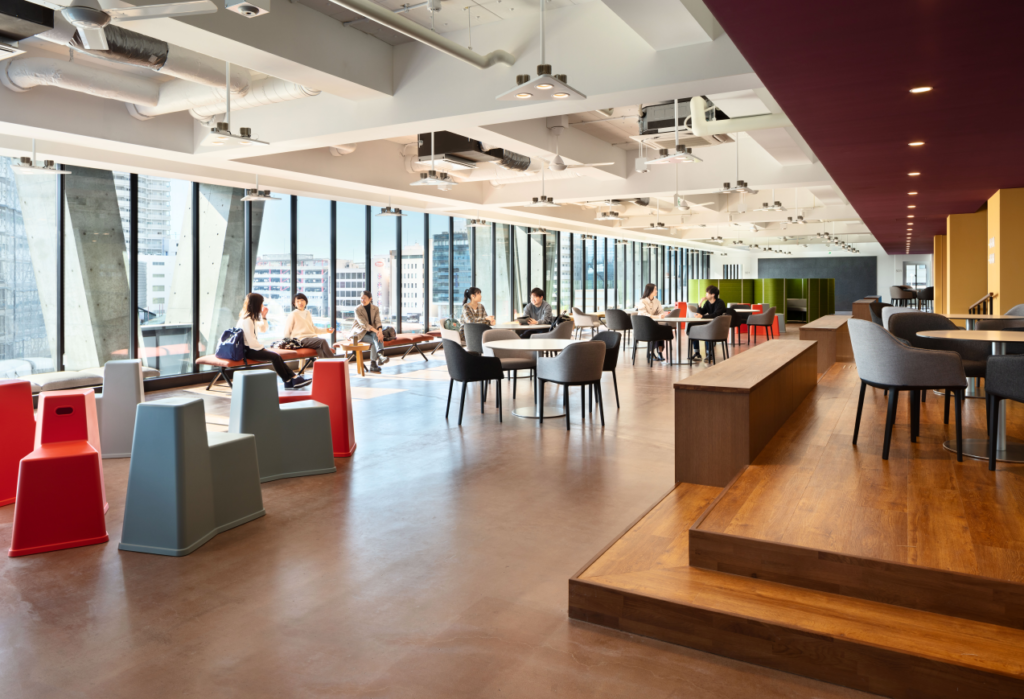 The Minoh Campus Relocation Project engaged members of the campus community, as well as external partners and stakeholders, such as Minoh City, Osaka Semba Fashion Co-operative Association (OSFCA, Landowner), Daikin Industries, and the Minoh Semba Town-planning Council that enhanced the dialogue and understanding of major issues in the area, as well as increased the engagement of local residents.
The Minoh Campus Relocation Project engaged members of the campus community, as well as external partners and stakeholders, such as Minoh City, Osaka Semba Fashion Co-operative Association (OSFCA, Landowner), Daikin Industries, and the Minoh Semba Town-planning Council that enhanced the dialogue and understanding of major issues in the area, as well as increased the engagement of local residents.
Next category: Cultural Change for Sustainability
2023 Award Winner: VinUniversity (Honorary Member Award)
VinUniversity’s Innovative and Equitable Approach to Healthcare
The VinUni-Illinois Smart Health Initiative is a collaborative project between VinUniversity (VinUni) in Vietnam and the University of Illinois Urbana-Champaign (UIUC) in the United States. This groundbreaking initiative aims to address major challenges in global public health and make progress towards sustainable development goals. It focuses on developing and providing widely accessible health monitoring and improvement technologies for people all over the world.
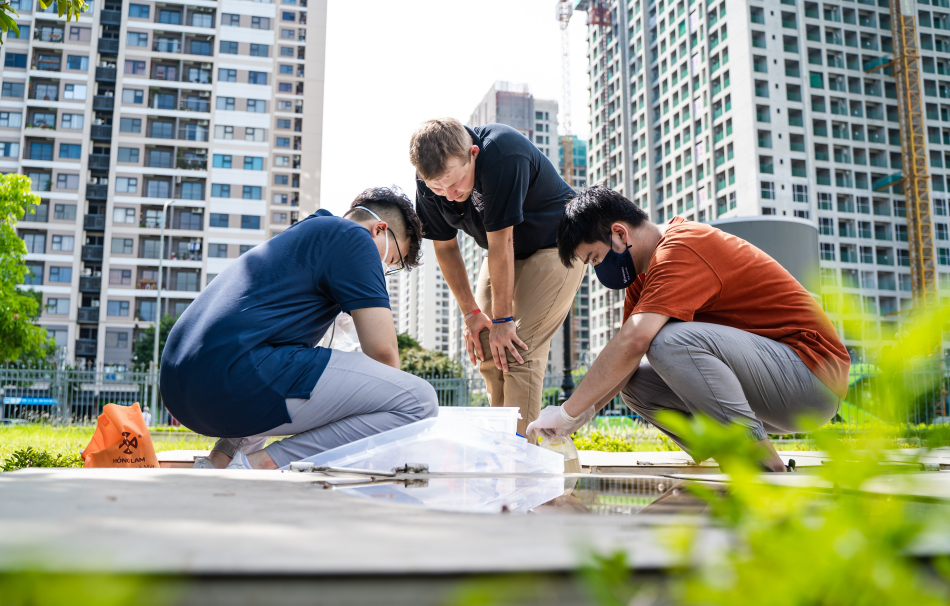
The initiative has provided funding for ten collaborative research projects involving faculty from both VinUni and UIUC. These projects conduct high-impact research on biomedical sensing, informatics, and their applications in smart healthcare. Since 2021, a total of 13.5 million USD has been invested in biosensing and digital health technologies to ensure that everyone, regardless of their income level or geographic location, has access to the latest healthcare technologies, particularly for early detection and prevention.
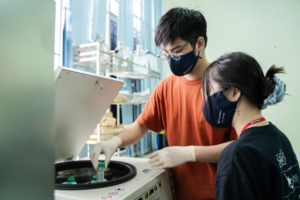
The initiative has developed low-cost innovative health technologies, improved public healthcare systems, and built sustainable interdisciplinary research collaborations between VinUni and other international partners. It has funded selected projects focusing on smart healthcare and biomedical research, trained postgraduate and undergraduate scholars, published numerous papers, created patents, and facilitated technology transfers that serve millions of people worldwide.
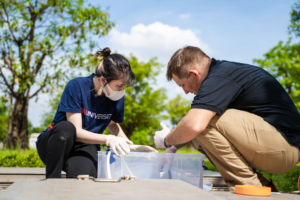
Engagement of stakeholders and the community has been a central aspect of the initiative. With more than 25 faculty members from VinUni and UIUC, as well as 50 research students, the project has attracted talented individuals who are dedicated to developing state-of-the-art sensing and digital technologies for accessible health monitoring. The initiative provides research funding and resources, international exchange and training experiences, and aims to build a better world for everyone.
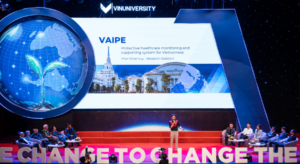
The VinUni-Illinois Smart Health Initiative is driven by a unique innovative approach that provides project with great scalable potential. The initiative focuses on developing low-cost, high-technology smart healthcare solutions that can be accessible at scale, providing smart monitoring, screening, and diagnostics for millions of people worldwide. Its unique vision addresses the most challenging burdens in public health and sustainable development. The initiative's technology, such as VAIPE, has already reached millions of users in Vietnam, demonstrating its potential for broader impact at regional, national, and international levels.
Next category: Whole Systems Approach
2022 Award winners: HKUST
This series features our 2022 Award winners. This month, we hear from the Hong Kong University of Science and Technology.
What does it mean to you to win the award?
For over a decade the ISCN has been a valuable resource and melting pot for campuses across different geographic and cultural zones to share ideas and make outstanding connections. To win this award is both an honor to the Hong Kong University of Science and Technology as well as a confirmation of our campus as a meaningful member of this society of sustainable campus leaders. We are pleased that the judges recognized our unique campus as a living lab approach, where we combine “Sustainable” with “Smart” elements for funded projects. In addition, our approach recognizes the inherent gap between the theory of academic researchers and the practical hands-on skills of campus professional operations staff. The “Sustainable Smart Campus as a living lab” (SSC) model serves as the bridge between the two groups so the learning and experience gained is a two-way street. We hope that by showcasing our approach to supporting sustainable and smart proof-of-concept projects, the award will open further doors for collaboration with other institutions around the world.

What’s next for the “Sustainable Smart Campus as a living lab” project?
The SSC has now been incorporated into our university’s new strategic plan 2021-208, so we have great confidence that this model will remain one of the top priorities of the HKUST for years to come. Going forward, support will be allocated through priority themes to ensure we are always encouraging our university community to be active contributors to our sustainability goals. For example, coming out of the pandemic, we recognize that many students are struggling with stress and depression. With this in mind, one of our priority themes for funding and support is for projects that address well-being and wellness. While we will continue to focus on broad "Grand Challenges" (e.g., net-zero GHG emissions, biodiversity, zero waste to the landfill) the targeted priority themes will allow us to adjust the program yearly to ensure we are meeting the needs of the campus community.
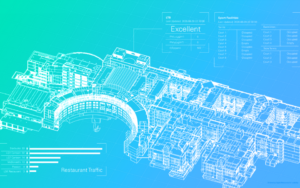
Do you have any advice for others starting on the living lab pathway?
Do not underestimate the positive impact of the living lab pathway. Our program has opened the door for us to create exceptional collaboration between the research teams and our professional operations staff to tackle the campus challenges together. Through the program, we instil a culture of learning from failure and self-initiated changes which is a core value that allowed us to engage faculty and staff from different backgrounds to form interdisciplinary project teams and realize the opportunities to put ideas into action. As time goes by, we found that some faculty have a common ground of interest and their own expertise could leverage each other to create impactful projects reaching the same goal. The living lab concept is not only a platform for systemic funding and support, but a true spirit that lives within us to bring research and innovation to life.
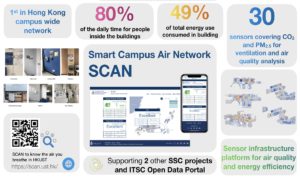
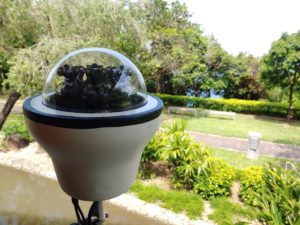
2022 Award winners: Edinburgh
This series features our 2022 Award winners. This month, we hear from The University of Edinburgh.
What does it mean to you to win the award?
The International Sustainable Campus Award is a fantastic reflection of the hard work and determination of the University of Edinburgh’s community to address the climate and environmental crisis, one of many complex and urgent challenges that the world faces. Students, staff and alumni, contribute towards the University’s vision to make the world a better place, by continuing to innovative, lead and deliver positive environmental and social change, both locally and globally, through our academic research, education, operations and partnerships.
What’s next for your project: “Whole Institution Approach to Addressing the Climate Crisis”?
The climate and environmental crisis is a key part of the University’s social and civic responsibility commitment. We are widening our climate focus to include more action on biodiversity, resources and the circular economy. We will continue to work to embed these issues further in the curriculum and experience of both staff and students, to create the tools, information and skills for the whole University community to innovate for social good, and to examine creative ways to use our buildings, our knowledge and skills, our procurements, our investments, and our reputation to support the Edinburgh city and wider region deliver positive environmental and social change.
We are committed to tackling climate change across all of our activities – this includes how we operate our estate, what we buy and invest in, the teaching and research we undertake and our partnerships. Our commitments include our confirmed plans to sequester more than one million tonnes of carbon dioxide, our continued funding of socially positive investments and the launch of the Edinburgh Earth Initiative in 2021.
Do you have any advice for those working on a “Whole Systems Approach”?
A successful “Whole Systems Approach” requires a clear vision and shared ownership across the University community and partners. A shared purpose will help embed commitments across all of University life as much as possible and deliver multiple benefits for colleagues and the institution. It is important to provide staff and students with the skills and understanding of climate and environmental issues, empowering them to embed these issues in decision making and to take action to deliver positive impact.
For more information on The University of Edinburgh's work see their Social and Civic Responsibility Report 2020-21.
2022 Award winners: ULiège
This series features our 2022 Award winners. This month, we hear from the Université de Liège.
What does it mean to you to win the award?
This international recognition generates a general feeling of pride at the University of Liege! It strengthens the energy of the Green Office team and motivates it to share the program in order to increase the positive impact. The publicity generated around the program makes the work of the Green Office more visible inside and outside the University. This better knowledge by internal and external actors at ULiège increases the potential for partnerships around the various activities integrated into the program (conferences, construction of challenges, etc.).
What’s next for your project: “Student commitment program to reduce individual carbon footprint”?
Two new goals have been already set by the team.
The first one is dedicated to broaden the outreach of the replication of the program. We aim to spread it from the French-speaking part of Belgium to the Dutch-speaking part of our country. This autumn we will organize the twinning of challenges for climate and biodiversity between our Higher Education institutions in these two regions.
The second one consists of enriching the content of the program by adding two new pillars to the strategy. The “Imagination Pillar” will invite our students to dream the sustainable territory they want to live in by 2030. The “Hope Pillar” consists in sharing inspiring positive initiatives to give our students the will to engage themselves to build together a sustainable world.
Do you have any advice for those working on “Cultural Change for Sustainability”?
Yes, we have some advice to motivate the students to engage themselves to act for cultural change for sustainability!
For example,
- build a very motivated student team with multidisciplinary profiles supported by a staff coordinator
- propose an attractive pioneer program which stimulates the interest
- ensure the scientific validation of the program to avoid “the false good ideas”
- include a large variety of stakeholders to build together the challenges (for example the Professors can build a challenge with their students within the framework of their courses)
- gather the engaged students into a single strong community on a collaborative platform
- give visibility to the impacts generated by the program’s actions
- share the program and organize simultaneous actions on different campuses to generate greater positive impacts and enthusiastic feelings
- offer fun through contests and festivities
- massively communicate to the students about the activities and the challenges with different tools: videos, debates with charismatic personalities, and so on.
2022 Award winners: Strathclyde
This series features our 2022 Award winners. This month, we hear from the University of Strathclyde.
What does it mean to you to win the award?
It is helpful and rewarding to have our work recognised by ISCN, our international peers. The vision that we created and shared with a host of stakeholders backed up by the whole systems approach and the technical work we have led has helped build a strong base for this climate-neutral vision to be delivered. It is exciting work we are leading and there is much more to do but this sort of recognition by ISCN is both valuable and reassuring that we are on the right path. For instance, reimagining the River Clyde as a heat source and creating a climate corridor along High Street, the original birthplace of Glasgow is innovative and inspirational. We see opportunity for our students and research and teaching staff to become more involved as we move forward in delivering the vision and helping put people at the centre of climate action and social inclusion.
What’s next for your project: “Climate Neutral Glasgow City Innovation District”?
Phase 2 of the project kicked off with a workshop held in early August. More detailed technical work is now underway with more to follow. We have recruited members for a Task Group to help steer the project and to signal positive intent to the market that there is a coherent and committed group leading this work. All of this work will continue to be coordinated at this stage by the University and the governance will be via Sustainable Glasgow Board, chaired by the leader of the Council, Susan Aitken.
Do you have any advice for those working on “Partnerships for Progress”?
I would encourage a strong and clear vision, and a strong and determined set of partners and a network that can come together with a shared purpose. In this case, a climate-neutral district that meets a range of societal needs and which will directly benefit people. Try and bring the vision to life and make it accessible for those involved. Make it as real as possible; align it with policy; and make it data-led and evidential of course.
Photo: Pipe Bridge and Tidal Weir, River Clyde cc-by-sa/2.0 - © Richard Sutcliffe - geograph.org.uk/p/4795538
ISCN Awards 2021: Congratulations to the WINNERS
ISCN Awards 2021: Congratulations to the WINNERS
ISCN is pleased to announce the winners of the ISCN Awards 2021. The many high-quality nominations received this year reflect the continued commitment and progress towards sustainability across ISCN. Thank you to the ISCN Awards Jury for taking the time to carefully select this year’s winners.
ISCN Awards 2021 Winners:
Whole Systems Approach
Covenant University – PET City Bricks
Partnerships for Progress
University of Leeds – Urban Biodiversity Monitoring Programme
Cultural Change for Sustainability
National University of Singapore – Towards Zero-Waste NUS 2030
Honorary Member Award
Galway-Mayo Institute of Technology – Facilitating Sustainability Literacy to Leadership Pathways for Staff and Students
For information on each of the winning submissions, please visit the ISCN Awards Page.
Celebrate with us at the ISCN Awards Ceremony 2021!!
ISCN Awards 2021: Awards Ceremony
20th May 2021
15:00-17:00 CEST (GMT+2)
(Check the start time in your time zone)
You can join the Awards Ceremony here: https://epfl.zoom.us/j/81853668420 (Meeting ID: 81853668420)
Add the event to your calendar
ISCN Awards 2021: Call for nominations NOW OPEN!
The ISCN Sustainable Campus Excellence Awards promotes landmark projects that demonstrate how university administrations and faculty alike strive to integrate sustainability in all facets of higher education, including campus infrastructure, research and education.
The ISCN Awards 2021 are a great way to acknowledge international excellence Take this opportunity to recognize the hard work, leadership and creativity that go into building sustainability at your institution.
The following Award Categories are open to ISCN members: Whole Systems Approach, Partnerships for Progress, and Cultural Change for Sustainability. An additional Honorary Member Award is granted to outstanding projects at non-member institutions.
Winning projects will be showcased at the virtual Awards Ceremony on 20th May (15:00 – 17:00 CET) in the lead up to/as part of the ISCN 2021 Conference “Accelerating Climate Action and Sustainability in Education”.
Visit the ISCN Awards 2021 webpage for more information on how to apply. Be sure to submit your application before the deadline on midnight March 8th, 2021.
